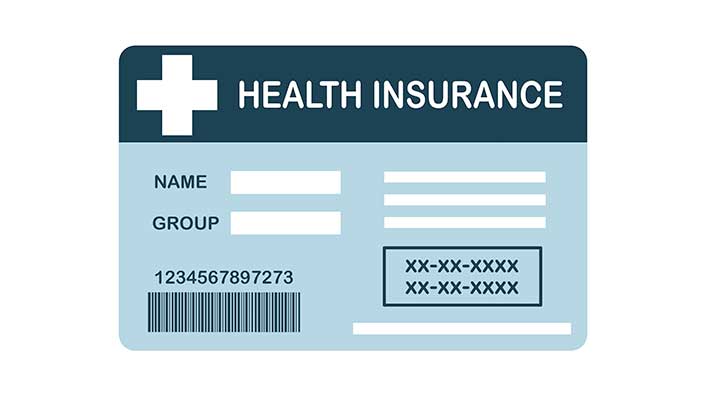Using Health Insurance To Cover Alcohol & Drug Rehab In Ohio
In Ohio, addiction treatment can be expensive. Fortunately, many of the state’s rehab centers, including Ohio Recovery Center, accept health insurance. The amount of coverage you receive depends on the type of insurance you have and the type of treatment you need.

Numerous Ohio residents live with alcohol addiction or drug addiction (also called substance use disorder). Like other health conditions, addiction is treatable. However, addiction treatment can be expensive. That’s why many people pay for it using insurance.
Most substance abuse treatment facilities in Ohio accept health insurance. The amount of health insurance coverage you receive depends on the type of insurance you have and the type of treatment you need.
There are two main types of health insurance plans: private insurance and public insurance.
Using Private Insurance For Rehab In Ohio
Private health insurance plans are plans purchased through the Affordable Care Act (ACA) Marketplace or directly from a private insurance company. Some of the most popular private insurance companies in Ohio include:
- Aetna
- Anthem
- Blue Cross Blue Shield
- Cigna
Most private insurance companies offer two types of insurance plans: health maintenance organizations (HMOs) and preferred provider organizations (PPOs).
HMO Plans
In most cases, HMO plans have lower premiums than PPO plans. A premium is an amount you pay each month for your insurance policy.
Also, with an HMO plan, you must use treatment centers and treatment providers in the plan’s network. When you’re seeking addiction treatment, your primary healthcare provider will refer you to an in-network rehab program.
PPO Plans
While PPO plans tend to have higher monthly premiums than HMO plans, they offer more flexibility. In other words, they may cover some out-of-network treatment services.
Also, unlike HMO plans, PPO plans don’t require you to get treatment referrals from your primary care provider.
How Much Rehab Does Private Insurance Cover?
Whether HMO or PPO, most private insurance plans will cover some or all of the cost of rehab.
The exact amount of coverage depends on the details of your plan, including deductibles and copays.
A deductible is the amount of money you must pay out of pocket before your coverage begins. A copay is a fixed fee you pay for a covered treatment. To learn about the details of your plan, contact your insurance provider.
Using Public Insurance For Rehab In Ohio
Public health insurance plans are plans purchased through a government program. There are two main types of public health insurance: Medicare and Medicaid.
Medicare is a government-sponsored insurance program for people aged 65 and older as well as people under 65 with certain disabilities.
Medicaid is a government-sponsored insurance program for people with low income.
Both programs offer rehab coverage. As with private insurance, the amount of coverage you receive depends on your specific plan.
Types Of Treatment Covered In Ohio
Both private and public insurance plans offer different amounts of coverage depending on what type of treatment you receive.
Inpatient & Outpatient Care
Some treatment programs are inpatient, including Ohio Recovery Center, which means you live at a drug or alcohol rehab facility and receive constant care. Other programs are outpatient, which means you regularly visit a rehab facility while living at home.
Inpatient treatment is usually recommended for people with moderate-to-severe addictions, while outpatient treatment can work for people with milder addictions.
Both inpatient and outpatient programs offer a variety of treatment options, including:
- medical detox, in which doctors help you manage withdrawal symptoms as you become sober
- mental health counseling, in which a behavioral health professional helps you cope with drug cravings and other psychological concerns
- medication-assisted treatment (MAT), in which doctors prescribe medications to ease cravings and symptoms associated with alcohol withdrawal, opioid withdrawal, and nicotine withdrawal
Dual Diagnosis Treatment
In addition, some people need dual diagnosis treatment. This level of care addresses addiction alongside co-occurring mental health conditions such as depression, bipolar disorder, and schizophrenia.
What Types Of Treatment Are Covered?
Some health insurance providers will cover some types of treatment but not others. Also, some providers will only cover your first rehab stay. If you relapse and need additional treatment, you may receive less coverage or no coverage at all.
To determine how much coverage you will receive for certain treatments, contact your health insurance provider or a rehab center with your information on hand.
Other Ways To Pay For Rehab In Ohio
Even with insurance, many people find the cost of addiction treatment too high. Luckily, there are other ways to help pay for rehab treatment in Ohio. For example, you could:
- take out a loan
- apply for a medical scholarship from an organization such as 10,000 Beds
- ask loved ones to help you pay
- ask for donations on a crowdfunding site such as GoFundMe
Additionally, some rehab centers offer payment plans, meaning you can pay for treatment in small increments over time.
To learn more about paying for drug and alcohol addiction treatment in Ohio, please reach out to Ohio Recovery Center. Our inpatient rehab programs offer personalized, evidence-based care to help you recover from alcohol or drug abuse.
- National Institute on Drug Abuse — Treatment Approaches for Drug Addiction DrugFacts https://nida.nih.gov/publications/drugfacts/treatment-approaches-drug-addiction
- Substance Abuse and Mental Health Services Administration — Medication-Assisted Treatment (MAT) https://www.samhsa.gov/medication-assisted-treatment
- U.S. Centers for Medicare & Medicaid Services — Mental health & substance abuse coverage https://www.healthcare.gov/coverage/mental-health-substance-abuse-coverage/

